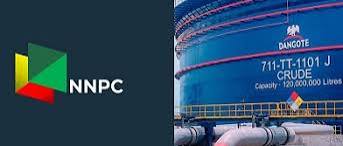Northern Ethnic Youths Group Assembly has expressed strong disapproval of the Nigerian National Petroleum Corporation (NNPC)’s decision to be the sole buyer of Premium Motor Spirit (PMS) from Dangote Refinery. He argues that this move undermines the principles of a competitive market and restricts consumers’ rights to choose, exacerbating the current fuel scarcity crisis in Nigeria.
NEYGA, in a statement signed by its spokesperson, Mr. Ibrahim Dan-Musa, sent to journalists in Abuja, , highlighted that while Dangote Refinery has begun refining petroleum products, the NNPC’s monopoly over purchasing these products is detrimental to the country. He criticized the president’s earlier directive for the NNPC to sell crude oil to Dangote in Naira, labeling it a political ploy that has not been implemented in practice.
Dan-Musa emphasized that the fuel shortage could be alleviated if Dangote’s refinery were allowed to operate in a truly competitive market. He condemned the NNPC’s management for their apparent disregard for the struggles of ordinary Nigerians, urging President Tinubu to acknowledge the hardships caused by fuel scarcity. He pointed out that the rising fuel prices, which have reached as high as N1,000 to N1,500 per liter in some areas, are contributing to escalating inflation and hardship across various economic sectors.
The Civil Group lamented that many Nigerians are enduring long queues for fuel, with some waiting up to 48 hours in Abuja. He accused the NNPC of prioritizing the interests of oil cartels over the welfare of the citizens, calling on influential figures in Nigeria to speak out against the worsening situation.
NEYGA further criticized the NNPC’s decision as an attempt to maintain monopolistic control over the fuel market, which he argues contradicts the objectives of the Petroleum Industry Act (PIA). He stressed the importance of fostering healthy competition throughout the petroleum value chain, stating that the NNPC’s actions are contrary to the spirit of the PIA, which took nearly two decades to pass. Despite the legislation, he claims that the NNPC continues to operate in ways that undermine its intended goals.


